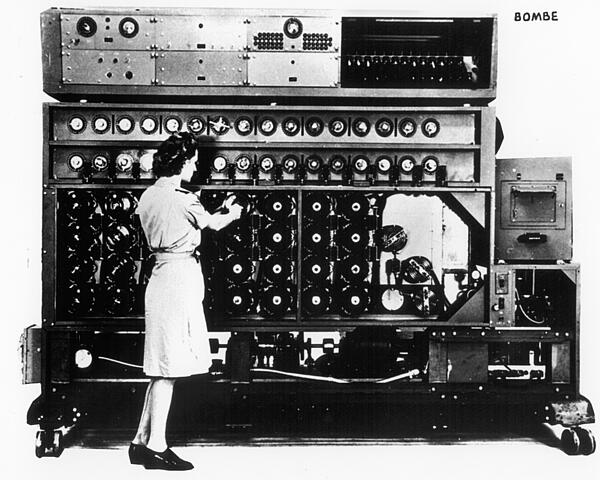Gordon Welchman
Gordon Welchman was a mathematician who worked as a codebreaker at Bletchley Park during World War Two. Along with William Tutte, Alan Turing, Max Newman, Tommy Flowers, Welchman played an important role in the Allied victory through their work. He improved Turing’s enigma-cipher-breaking machine, the bombe, and made it significantly more efficient.
Born on 15 June 1906, Welchman became a research scholar at Sidney Sussex College, Cambridge after completing his degree in Mathematics at Trinity College. By 1932 he was a Fellow.
Welchman was one of the first recruits at Bletchley Park, which gave him, along with Alan Turing, Hugh Alexander and Stuart Milner-Barry the status of ‘wicked uncles’.

Welchman’s role at Bletchley Park is frequently overlooked in favour of the work of Alan Turing or the other famous codebreakers. However, he played a vital role in improving the Bombe, making it faster and more efficient.
Welchman was responsible for cracking German air force and army codes. He was head of Hut Six, the section at Bletchley Park responsible for breaking German Army and Air Force Enigma ciphers.
Welchman was made Assistant Director of Bletchley Park in 1943. When the war was ended he was not awarded for his work owing to the secrecy of the project.
Welchman emigrated to America in 1948 where he taught the Massachusetts Institute of Technology’s first computing course.
Welchman wrote a book in 1971 called ‘The Hut 6 Story’, which told the story of his experience at Bletchley Park. Even though the book was published 37 years after World War Two, it was frowned upon by the National Security Agency. It revoked his security clearance in the USA and banned him from speaking about his war work to the media.
Gordon Welchman died on 8 October 1985.
See also: The Lorenz SZ40
MLA Citation/Reference
"Gordon Welchman". HistoryLearning.com. 2026. Web.
